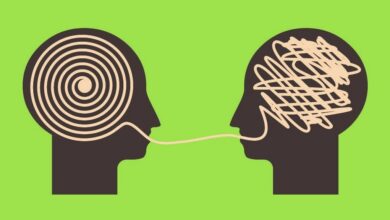Understanding Different Types of Mental Health Problems
4. Eating Disorders
Eating disorders revolve around unhealthy eating habits and distorted body image. Anorexia nervosa, bulimia nervosa, and binge eating disorder are common examples. These disorders often stem from societal, psychological, and genetic factors.

Addressing Eating Disorders
Early intervention is vital in treating eating disorders. Look for symptoms such as:
-
-
-
-
- Severe restriction of food intake
- Binge eating episodes
- Excessive concern about body weight
-
-
-
5. Personality Disorders
Personality disorders involve deeply ingrained patterns of behavior that can lead to distress or impaired functioning. Borderline personality disorder (BPD) and narcissistic personality disorder are examples. Individuals with BPD may struggle with intense emotions, unstable relationships, and self-image issues.
Navigating Personality Disorders
Dealing with personality disorders requires understanding and patience. Key symptoms include:
-
-
-
-
- Fear of abandonment
- Impulsive behaviors
- Difficulty empathizing with others
-
-
-
Seeking Help and Support
If you or someone you know is struggling with any of these mental health problems, remember that seeking help is a sign of strength, not weakness. Qualified mental health professionals can provide accurate diagnoses and personalized treatment plans. Remember, you’re not alone on this journey toward better mental health
SEE ALSO: What Are the 4 Types of Mental Health Disorders?
Conclusion
In conclusion, understanding different types of mental health problems is crucial for promoting awareness, reducing stigma, and ensuring timely support and treatment. By recognizing the symptoms and seeking appropriate help, individuals can take control of their mental well-being and embark on a path toward a healthier and more fulfilling life. At our organization, we are dedicated to providing accurate information and support to empower everyone in this journey





